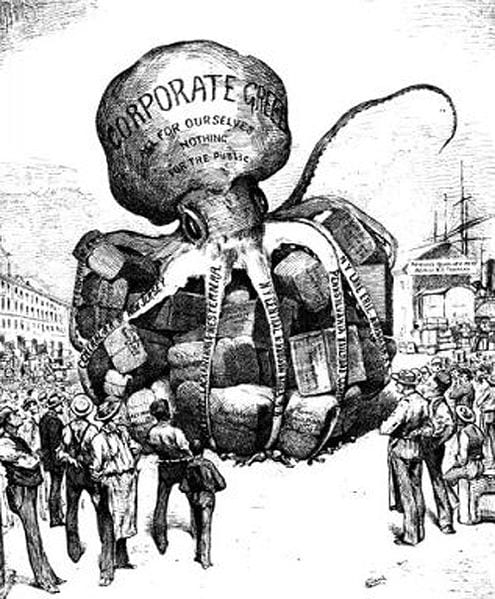The conversation about student loan forgiveness has come around again, and once again we are being regaled with laments about how unfair it is, to those who already paid their debts, should other people be released from another twenty or thirty years of Sysiphean labors.
I am at a loss to understand why another person’s good fortune should embitter one’s own success, but this is apparently a thing. Resentment of the rich by the poor makes sense to me, especially given that the majority of wealthy people are so thanks to the labors of the poor – but, being well-off and resenting the idea that others should get a break strikes me as the very opposite even of such merely human virtues as noblesse oblige and magnanimity, let alone the kind of charity and care for the common good to which Christians are called.
Keep in mind, too: plenty of debtors have already paid off the actual monetary amount they initially borrowed, but – in an economy where everything’s raising but the wages – mounting interest means that, given what many can afford to pay, they will have reimbursed the lending institutions some three times as much, by the end of it all. Recipients of student loan forgiveness would not be weaseling out of a moral obligation to repay a loan; rather, this would be a case of preventing lending institutions from carrying on with their ongoing and systemic injustice.
Debt forgiveness: a venerable Christian tradition.
Catholics, in particular, should keep in mind that debt forgiveness is part of the Christian tradition, and has roots in the old Jewish tradition of “Jubilee Years” when debts were erased, and land was allowed to lie fallow. Constantly churning along in unremitting production is contrary to our Christian cultural heritage that values rest, and honors natural cycles – even passing on a sacred story in which the Creator rests, after the work of Creation.
As to the lenders? They are usurers – chargers of unjust and crippling interest. And yes, traditionally the church condemned usury. In the Divine Comedy the usurers are regarded as sinners against nature, because of their attempt to make money “reproduce” unnaturally. The teaching on usury has never been changed. It simply appears to have been conveniently forgotten.
The ethics of labor.
From the perspective of the ethics of work, it is often reiterated that it is unjust to deprive a worker of the wages that are their due. This pertains most directly to bad bosses. And bad bosses who pay badly because “we’re a religious ministry” are not, incidentally, exempt from this.
But we need to think also of the injustice of accruing wealth that one has not earned, has not worked for, has given nothing for. This is what the charging of excess interest entails. It involves stealing the earnings of the workers who actually labored for it, enriching oneself unjustly from their labor. To accrue wealth this way is, in terms of classical morality, a sin both of greed and of sloth.
Objections to student loan forgiveness also neglect the reality that communities and societies benefit when citizens are not crippled with debt. If you wish to live in a healthy and flourishing society – or if your concern is even, simply, about the robustness of the economy – you should support student loan forgiveness.
If, in spite of the fact that student loan forgiveness is practical, ethical, and part of the Christian tradition, you insist on prioritizing your need to see people suffer over concerns about ethics and the common good – at least stop pretending that this particularly bizarre and unappealing kink is a flourish of virtue.
image credit: https://commons.wikimedia.org/wiki/File:Corporate_greed_octopus.jpg













